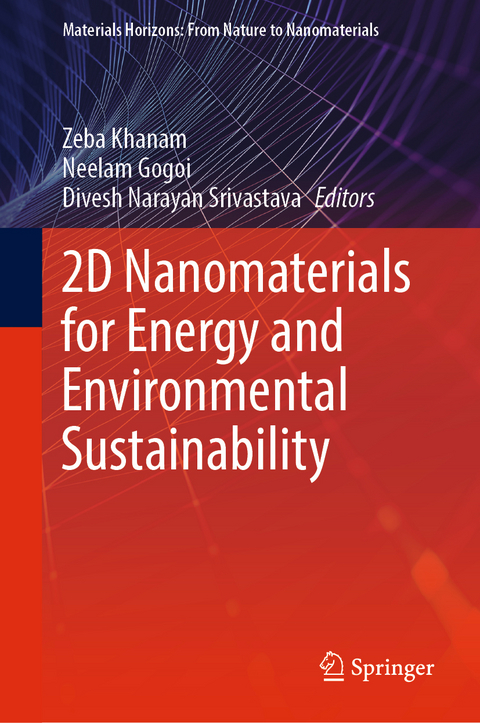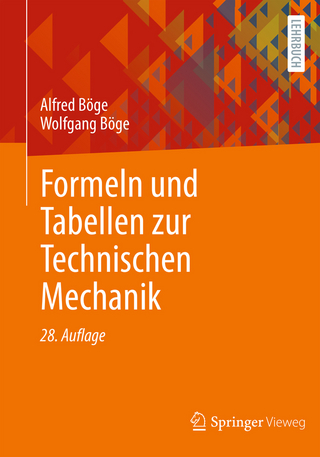
2D Nanomaterials for Energy and Environmental Sustainability
Springer Verlag, Singapore
978-981-16-8537-8 (ISBN)
Dr. Zeba Khanam is currently working as a postdoctoral researcher at School of Materials Science and Engineering, Harbin Institute of Technology, Shenzhen, China. She obtained her Ph.D. in Environmental sciences from G. B. Pant University of Agriculture and Technology, Pantnagar, India. Her research work encompasses a broad spectrum of energy and environmental applications including electrochemical energy storage materials, flexible electrodes, polymer electrolytes, anticorrosive coatings, electrochemical sensing, and water quality assessment. She authored 11 scientific articles published in leading international journals, 5 popular articles in national magazines and 5 book chapters. She has presented her work at numerous national/international conferences including the most prestigious RSC FD-173 event. She is a recipient of national/international fellowships and recently received NESA Junior Scientist-2020 award from National Environmental Science Academy (NESA), India. She is serving as a referee for reputed journals of Springer, Elsevier, Wiley, and T&F, and holds the membership of scientific societies namely, RSC-London, NESA-India, and ISCA-India. Dr. Neelam Gogoi is a postdoctoral research associate at School of Life and Environmental Sciences and a research affiliate at School of Chemistry, University of Sydney. Before that, she worked at Chinese Academy of Sciences. She obtained her Ph.D. in Chemistry from University of Gauhati, India. Her research areas include genetic nano-engineering in plants, polymer chemistry, and carbon nanomaterials for sensors, drug delivery, and gene delivery systems. She published 14 research articles in American Chemical Society, Royal Society of Chemistry, and Elsevier along with 2 chapters. She received Nature travel grant to present at GRC, Massachusetts. DST, Government of India, sponsored her work to present at Royal Society of Chemistry, London. She is a recipient of RSC Nanoscale Best PosterAward, Dr. Shanti Nath Ghosh Memorial Award for Best Oral Talk, and many more. Dr. Neelam is currently in the editorial board of JENR, Medwin Publishers. Dr. Divesh Narayan Srivastava currently holds the position of the senior principal scientist at CSIR-CSMCRI, India, and a professor, AcSIR. He graduated from BHU, India, in 1999, followed by spent few years at Bar-Ilan University, Israel, and IIT Bombay, India, as a postdoctoral fellow. His current research interest includes electrochemical sensors and electrocatalysis. He has 98 research papers, 3 book chapters and 4 patents in his credit and developed technologies such as “Plastic chip electrodes” and “Tailored Potentiostat”. He is associate fellow of Gujarat Science Academy and is a recognized member of several other national/international scientific and administrative organizations
An Introduction to the Wonder 2D Nanomaterials: Synthetic Approaches and Fundamental Properties.- Emerging 2D nanomaterial composites for Efficient Energy Conversion: Insight into the Evolutionary Perspective of Devices.- Next-generation 2D nanomaterial composites Electrodes for Electrochemical Energy Storage.- Novel 2D nanomaterial composites photocatalysts: Application in degradation of water contaminants.- Advanced 2D nanomaterial composites: Applications in adsorption of water pollutants and toxic gases
| Erscheinungsdatum | 04.02.2022 |
|---|---|
| Reihe/Serie | Materials Horizons: From Nature to Nanomaterials |
| Zusatzinfo | 52 Illustrations, color; 14 Illustrations, black and white; X, 329 p. 66 illus., 52 illus. in color. |
| Verlagsort | Singapore |
| Sprache | englisch |
| Maße | 155 x 235 mm |
| Themenwelt | Technik ► Bauwesen |
| Technik ► Maschinenbau | |
| Schlagworte | Energy Storage • Environmental remediation • sensing • Sustainable Environment • Toxicity |
| ISBN-10 | 981-16-8537-1 / 9811685371 |
| ISBN-13 | 978-981-16-8537-8 / 9789811685378 |
| Zustand | Neuware |
| Haben Sie eine Frage zum Produkt? |
aus dem Bereich


